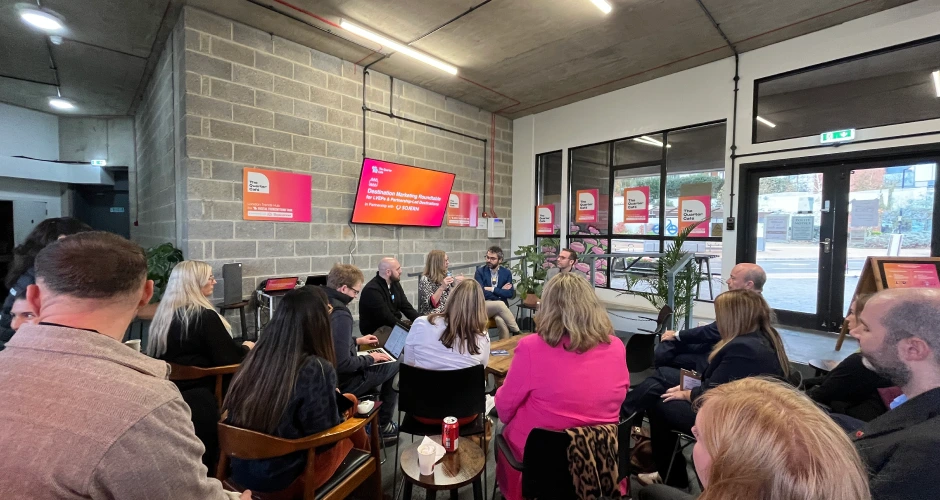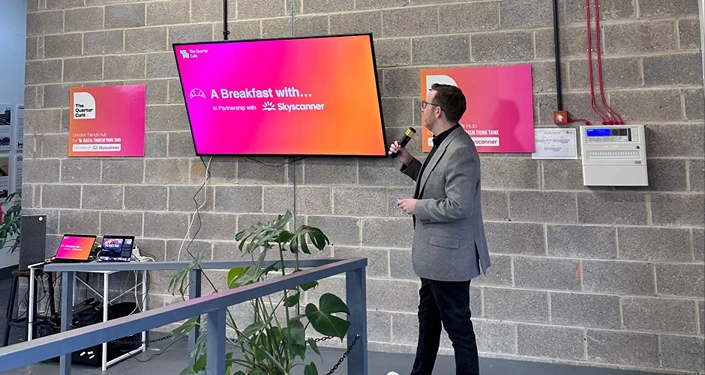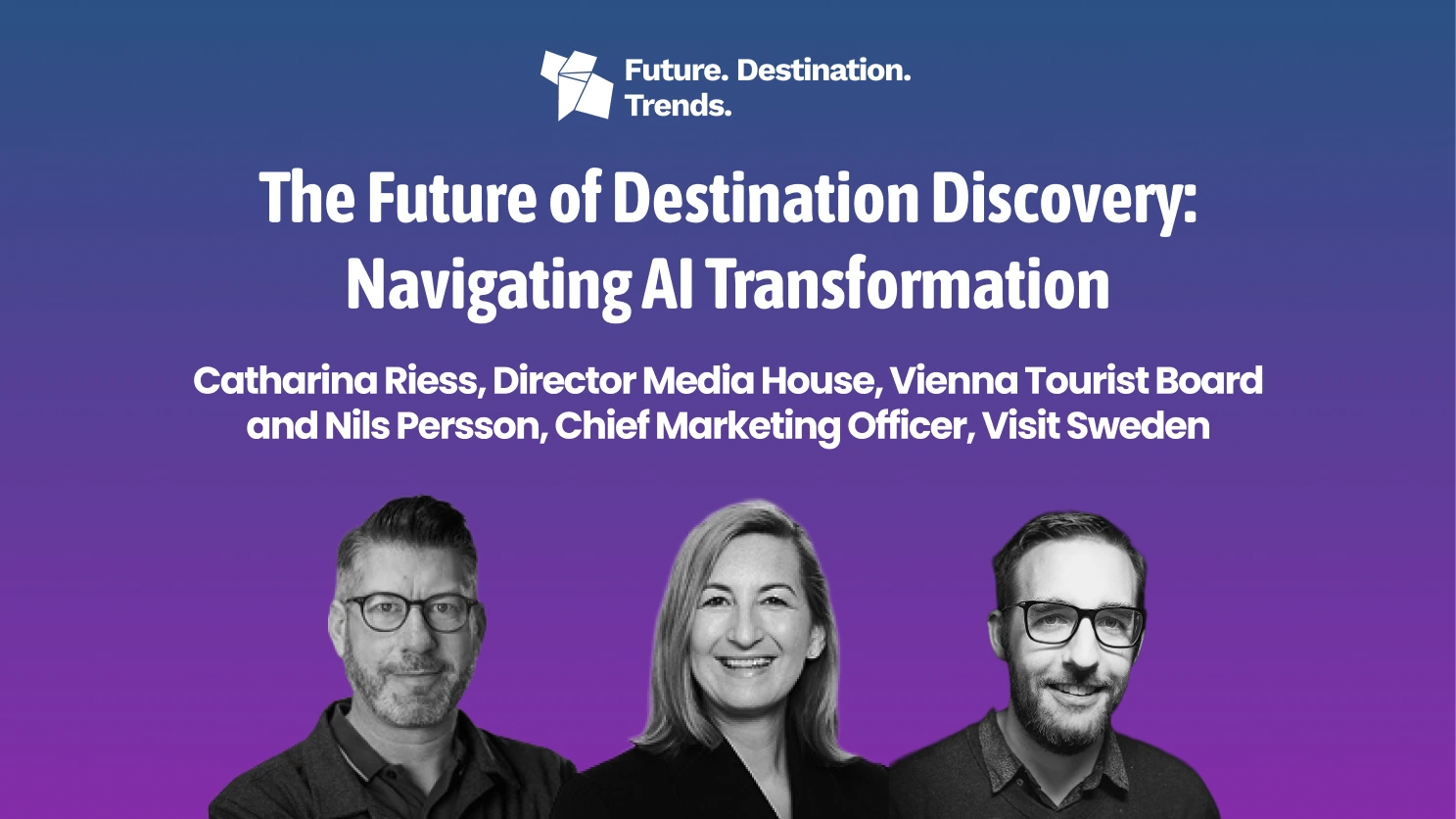The Marketing Technology, Strategy & Data-Driven Impact Workstream held its first meeting on 9 October 2024 to discuss the best approaches for leveraging emerging technologies to automate marketing workflows and develop impactful campaigns. During this session, we discussed the barriers to innovation at DMOs, data gaps, the rapid emergence of AI tools and the role of social media and DMO websites in inspiring travellers and driving conversion.
Key Challenges
The rapid evolution of Marketing Technology (MarTech) presents both immense opportunities and significant challenges for DMOs. While generative AI and automation offer the potential to streamline workflows and enhance marketing efforts, DMOs must carefully navigate the complex landscape of technology adoption. Key challenges include aligning and sharing knowledge within large teams, addressing data privacy and security concerns and ensuring effective integration of tools and platforms.
The need to balance innovation with risk mitigation, coupled with the complex regulatory environment and stakeholder reporting processes, can hinder the adoption of new technologies within government-funded DMOs. The lack of understanding of public sector nuances by AI developers and the bureaucratic hurdles associated with procuring and implementing Software-as-a-Service tools further complicate the process.
New customer engagement platforms offer opportunities for multichannel communication and personalised experiences. However, data privacy regulations and the shift towards cookieless tracking present challenges in building comprehensive visitor profiles. The increasing complexity of attribution modelling further emphasises the need for robust data collection and analysis.
While generative AI holds immense potential for DMOs, with tools streamlining workflows and AI-powered search enhancing discoverability. While standardised data models for tourism experiences can help unlock the full potential of AI, DMOs need to actively enrich the cultural data used to train these models. Other challenges also remain, including translation barriers for less widely spoken languages and the constant need for human oversight to ensure ethical and responsible AI development and maintain accuracy in digital content.
Despite the rise of third-party platforms, destination websites remain a crucial component of DMO digital strategies. While they require significant investment and ongoing maintenance, websites offer unparalleled control over branding, messaging and the user experience. Headless CMS technology enable DMOs to create dynamic and engaging websites that adapt to user needs. Nevertheless, exploring evolving social media algorithms is essential for driving initial exposure to inspirational content.
Next Steps
Through exchanging the outcomes of experimenting with emerging MarTech tools and building integrated marketing stacks and candidly highlighting failures and key learnings, Workstream Members will collaborate to unlock the full potential of MarTech and determine:
- Changing Dynamics of Visitor Journeys
- Social Media Optimisation Strategies
- Leveraging Customer Data Platforms
- Maximising the Potential of Generative AI
- Approaches for Measuring Return On Investment
- Attribution Modelling and Reporting Guidelines
- Building Innovation Roadmaps
Alongside these regular discussions and knowledge-sharing sessions with leading DMOs, 5 key outputs will be developed:
- DMO MarTech Playbook: A dynamic resource, providing detailed information and reviews of MarTech tools.
- Enabling Strategic Partnerships: Working with dominant technology platforms to develop standardised data structures for enhancing DMO content in AI searches.
- State of Destination Data: A comprehensive study analysing the depth of visitor profiles.
- AI Experimentation Labs: Experimenting with creative solutions and generative AI tools to assess their effectiveness in addressing diverse challenges.
- Return on Investment Measurement Guide: An essential tool to track KPIs, analyse attribution models and evaluate the effectiveness of marketing campaigns and technology investments.
Discover more about the Workstream and how to participate here.






.svg)












.webp)
